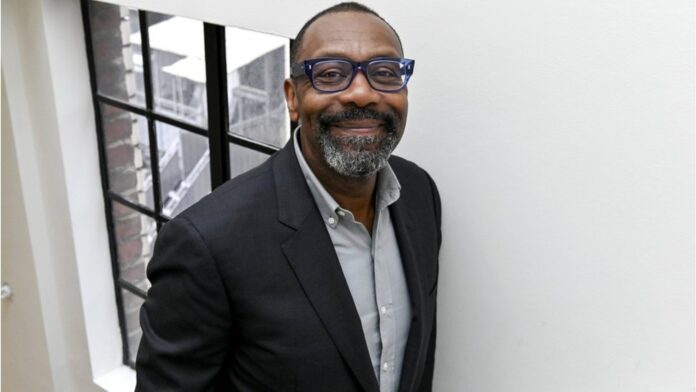The apparent paucity of black individuals in the audience at Glastonbury Festival has been described as “curious” by Sir Lenny Henry.
The 63-year-old actor and comedian have expressed surprise at the lack of diversity at other UK events.
Stormzy’s appearance in 2019 was “a little bit late,” according to Emily Eavis, the event’s co-organiser.
The grime artist and rapper delivered a headline show, becoming the festival’s first black solo British headliner.
Ms Eavis explained: “He was representing the black community in a predominantly white festival, which is a significant occasion for us, but it may be a little late.”
Sir Lenny was talking about diversity and areas where individuals of different races don’t interact when he said: “It’s interesting to watch Glastonbury and notice that there are no black people in the audience.”
“The lack of black and brown faces at festivals constantly astounds me.” Wow, that’s still very much a dominating cultural thing, I believe.”
A representative from the Glastonbury Festival has been contacted for comment.
After being postponed due to the pandemic, the festival is finally celebrating its 50th anniversary at Worthy Farm in Somerset.
The headliners have been confirmed as Sir Paul McCartney, Billie Eilish, and rapper Kendrick Lamar.
Sir Lenny, who is starring in a two-part documentary about Caribbean culture in the United Kingdom, also spoke about Mr Myrie’s recent appointment as the first black host of the long-running BBC quiz game Mastermind.
He stated,” It’s fantastic to see David Olusoga on TV discussing black British history dating back to Hadrian’s Wall.
“Somewhere along the line, the gatekeepers have shifted,” because we can now have you on Mastermind. But how long did it take you to do that?
“We will continue to demand more representation because we are deserving of it.” We are both British citizens and colonial subjects.
We’ve lived in this nation, we’ve grown up in this country, we’ve contributed, and many of us believe we’re not getting enough in return.
“That is also the subject of this film.” It’s about the sense of ‘hey, come on, I fit in.’ So, what’s next? Now that I’ve integrated, what happens next”.

















